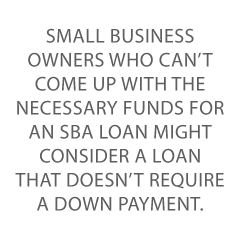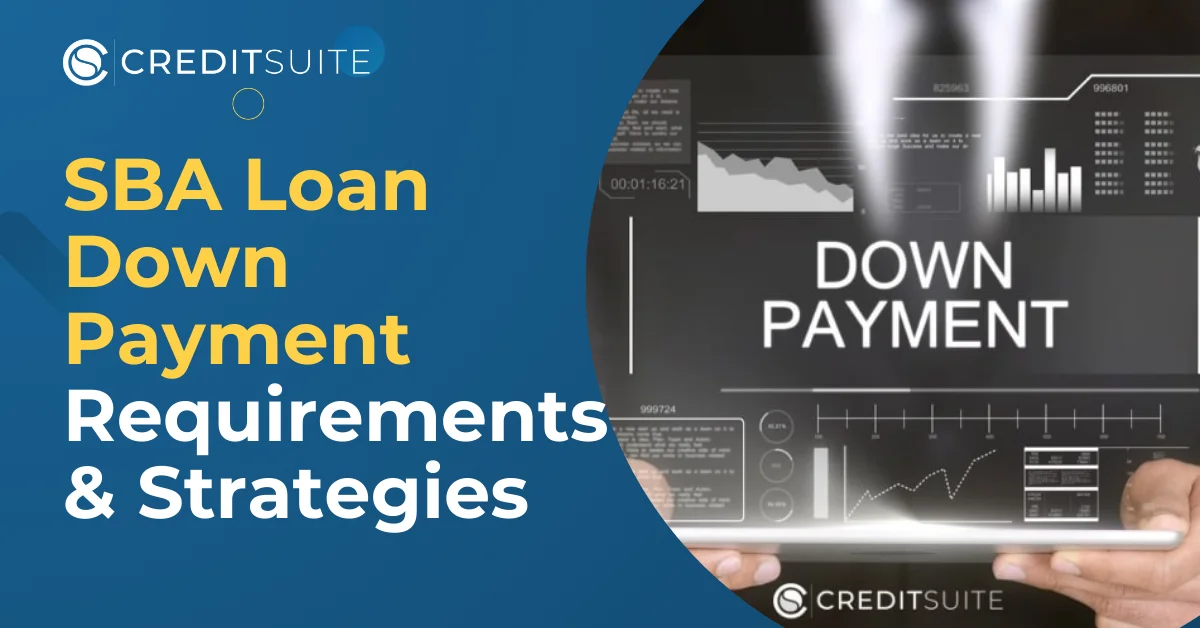An SBA loan can be a game changer for companies that need funding. Backed by the Small Business Administration (SBA), these loans are known for their large borrowing limits, attractive interest rates and generous repayment terms. But one of the biggest downsides of an SBA loan is that borrowers are generally required to make a down payment — usually to the tune of 10% to 30% of the loan amount. That can be a real hurdle for small businesses, especially if operating expenses are tight. Here are seven creative ways to fund your SBA loan down payment.
1. Use personal savings
If your business is short on cash reserves, you could turn to your personal savings to cover your SBA loan down payment. This can be a good option because it doesn’t require you to sacrifice equity in your company. You’re essentially borrowing money from yourself, interest-free.
However, there are potential downsides. Depending on your loan size, you may have to use a significant chunk of your savings. That could deplete your emergency fund and jeopardize your financial health. If your income slows down or you experience a financial surprise, you’ll want cash on hand to see you through. Most financial experts recommend keeping three to six months’ worth of expenses in your emergency fund.
2. Turn to an investor
 Working with outside investors can provide small business owners with much-needed capital. Angel investors, for example, are usually wealthy individuals who put their own personal funds into growing businesses. The right investor may agree to float you the money for your SBA loan down payment in exchange for a slice of equity. Working with an angel investor can have other advantages. If you partner with someone who has professional business experience, they could provide guidance and mentorship along the way.
Working with outside investors can provide small business owners with much-needed capital. Angel investors, for example, are usually wealthy individuals who put their own personal funds into growing businesses. The right investor may agree to float you the money for your SBA loan down payment in exchange for a slice of equity. Working with an angel investor can have other advantages. If you partner with someone who has professional business experience, they could provide guidance and mentorship along the way.
The main drawback is that they’ll seek an ownership stake in your company. That can be a disadvantage for folks who don’t want to sacrifice their equity position. There’s also the chance that you could clash with an angel investor’s guidance or professional approach.
3. Make a lifestyle change
If you borrow your down payment from friends or family, that’s still a loan that you’ll eventually have to repay. Some small business owners might prefer to make some short-term sacrifices instead. That may include:
- Selling your home and downsizing to something more affordable
- Foregoing a vacation
- Selling your car and buying something cheaper (or opting for public transportation)
These are some pretty significant lifestyle changes, but they could quickly unlock money for your SBA loan down payment. Some business owners might see that as a worthwhile trade.
4. Tap your retirement funds
Your nest egg could be another source of funding. That might make sense for small business owners who are in a pinch and need to come up with an SBA loan down payment quickly. If you have money in a Roth IRA, you can withdraw contributions whenever you like, penalty-free.
Just be aware that you may be penalized for tapping investment earnings if you’re under 59 ½ and have had the account for less than five years.
A 401(k) and a traditional IRA are options too, but you may be hit with an early withdrawal penalty. You’ll also be taxed on any distributions.
Instead, a rollover as a business startup (ROBS) may be appealing if your business is structured as a C corporation. It allows you to roll retirement funds into a new account that buys shares of your corporation.
Contact us and explore 401(k) business financing options.
The main trade-off of using retirement accounts to generate capital is that you’re dipping into money that’s meant to fund your future, which isn’t ideal. Pulling money out of the stock market could also cut you off from future investment returns.
5. Use home equity
If you own a home, you may be able to use it as collateral and borrow against your equity. A home equity loan provides a lump sum of cash that you can put toward your SBA loan down payment. You’ll then repay the loan over time.
Loan terms can be anywhere from five to 30 years. Think of it as a quick way to convert home equity into cash.
If you have other business expenses, a home equity line of credit might be a better fit. You can draw on it as needed, and you’ll only pay interest on the amount you borrow.
It’s worth noting, however, that you could lose your home if you default on a home equity loan or line of credit — so proceed with caution.
6. Think about crowdfunding
Crowdfunding can be another route for small business owners who need money to fund an SBA loan. These platforms allow you to accept contributions from friends, family and the general public. They might be considered donations, though some platforms may require you to give contributors a stake in your company or provide them with services or products.
When choosing a platform, be sure to understand the fee structure. Most will take a cut of your earnings and may charge other fees. Also, you may have to give all the money back if you don’t meet your goal, so be sure to read the fine print before proceeding.
7. Consider a loan that doesn’t require a down payment
Small business owners who can’t come up with the necessary funds for an SBA loan might consider a loan that doesn’t require a down payment. Term loans are one alternative. They have both short and long repayment terms. 
Online lenders are particularly fast and accessible, but you’ll be hard-pressed to find interest rates as competitive as the rates for SBA loans.
A business line of credit is another option. Again, you’ll only pay interest on the amount you borrow, though interest rates can vary widely. Some lenders may also tack on an origination fee and other charges.
SBA loans can be a great source of capital for small business owners, but they typically have stricter eligibility criteria than other financing options. If approved, you’ll likely need to provide a substantial down payment.
Exploring the options above might help you get the funding your business needs. And be sure to contact us today to explore other down payment financing options, like our Credit Line Hybrid. Let us help you get the financing you need so your business can succeed.



